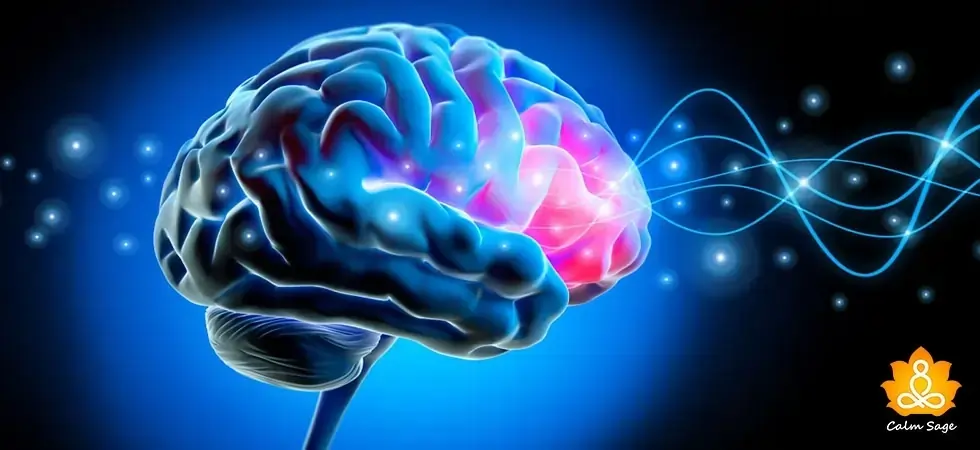There Are 4 Types Of Intuitive Thinking, Which One Do You Have?

Intuition is that feeling you experience when you instinctively know what you’re doing and whether it’s right or wrong. Intuition is a mystery to many but even then, psychologists have progressed and now have a better understanding of how intuition works and affects parts of our brains.
What they’ve found is that intuition is connected to emotions and our rational mind. I guess that’s why it’s a mystery to many.
Intuitive thinking is the kind of thinking that refers to our ability to instinctively know things without relying on logical reasoning. It’s more of a feeling that something is right or wrong without relying on proof.
Intuitive thinking, whether you know it or not, is always there in our thoughts and reasoning along with logic and conscious reasoning and that’s one of the reasons why intuitive thinking can affect our decision-making. And let’s face it, more often than not, it’s because of our intuitive thinking we get the desired result.
Many experts call intuitive thinking “the clinical eye”. So if you’ve ever been called a “visionary”, it might be because you have strong intuition or intuitive thinking skills.
Below, let’s take a look at the 4 types of intuitive thinking and how they can affect our thought process.
What Is Intuition?
First things first, let’s understand what intuition is. Intuition cannot be called logical. It’s not something you can explain. It is a feeling that feels natural and instinctive. While your intuition may feel just right, it’s not always accurate or logical.
Intuition can be defined as the ability to gain insight without using logical reasoning. This lack of logical reasoning is what makes the belief in intuition deep. Intuition, for the lack of a better word, is based on our previous experiences and the learning we got from the past results.
What The Science Says About Intuitive Thinking
Intuition is very strongly tied to our emotions and this topic has led to many talks. It’s not easy to prove how intuition works and how it is important. Despite this, science still has a say when it comes to intuition.
In a research study, it was found that intuitive thinking develops in the neocortex, the part of the brain that has the right and left hemispheres of the cerebrum, and in the part that’s close to the pineal gland. In layman terms, the area in the middle of your forehead.
Even though scientists aren’t sure how intuition works, they believe that it has something to do with the instant processing, experiences, and our subconscious. The outcome is often a correct analysis of reality. The thing you feel in your gut, well, that’s your intuition.
But, is intuition that important?
Well, yes!
Intuition helps us respond quickly while giving us confidence in our decision-making. This “automatic thinking” is based on our past experiences. For example, when you visit a restaurant and before you get the check, you instinctively know the cost – all of this is based on your previous experience with the restaurant.
Intuition can help with survival as well. It gives quick responses that can address an immediate action in a dangerous situation. While intuition and intuitive thinking have their benefits, they can have some drawbacks as well.
Intuitive thinking can cause partiality in our decision-making process, especially when our decisions need to be rationally thought out.
The 4 Types Of Intuitive Thinking
1. Emotional Intuitive Thinking
Emotional intuitive thinking is about the ability to immediately understand others’ personality traits and emotional states. If you have this type of intuitive thinking, then you can easily and quickly see who people are, and how they are feeling, without them needing to say anything.
2. Mental Intuitive Thinking
Mental intuitive thinking is when you find a quick solution to a problem without researching it. This intuitive thinking is about your cognitive ability and is very common in people who have careers where quick thinking is acknowledged. For example, you can find mental intuitive thinking in firefighters.
3. Psychic Intuitive Thinking
Psychic intuitive thinking is the ability to effectively deal with any personal crisis without any mental effort. This type of intuitive thinking can be counted as a self-care practice where you instinctively protect your mind from negative situations.
4. Spiritual Intuitive Thinking
Spiritual intuitive thinking is the state of enlightenment where it’s more about the experience than the fact. This is more mystical in nature and can be found most commonly in Buddhists. This type of intuitive thinking sheds light on the connection to the higher power.
Can You Improve Intuitive Thinking?
Not many people depend on their intuition to make decisions. We all need to rely on proof and rationality, however, chasing rationality is not always the right thing to do. When we don’t have anything scientific to rely on, it becomes harder for us to believe in it. True?
Moreover, when you don’t trust yourself, it can affect your intuitive thinking. If you’re constantly doubting yourself, it can impair your intuitive thinking; to the point where you get confused and become skeptical of everything.
You can improve your intuitive thinking and allow yourself to rely on your intuition. All you need to do is jot down the first thing that comes to your mind. Jot it down before your rational mind kicks in. The first thing you’ll write will be your automatic thought; the intuitive thought.
Later, you can look at your notes and see if your intuition was right or wrong. Compare it with the result you got. This will help you make sense of your thinking and understand the situation well too.
This is an interesting activity, isn’t it? Give it a try and let us know in the comments how it turned out? Are you an intuitive thinker? If yes, which type of intuitive thinking do you have?
Share your thoughts in the comments section or let us know by writing to us at info@calmsage.com. I hope this blog helped you understand what intuitive thinking is and how it works.
For more, follow us on our social media and stay tuned for more interesting content.
Take Care!




















